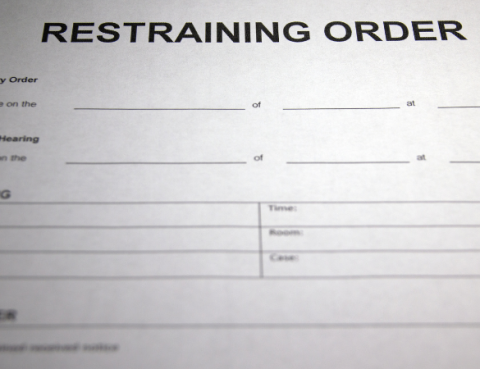Property Division Attorneys in Schaumburg, IL
When a divorce occurs, the most important matter to resolve, after child custody, is property division. Illinois is an “equitable distribution” state which means that marital property is divided equitably between the divorcing spouses, but not equally. There are many factors that are taken into consideration by the courts when it comes to the equitable division of marital property to ensure that assets and debts are divided fairly.
At Barber Law Offices, our divorce attorneys, including Allen Gabe, in Schaumburg, IL can help you through every step of your divorce, including property division. We will examine the marital property and help negotiate an agreement on the property division that is fair and within the law.
Equitable Division vs Community Property
There are nine states in the U.S. that are community property states. In these states, all marital property is divided evenly between the two divorcing spouses regardless of any other factors. Illinois is one of the 41 states that is an equitable division state. In Illinois, marital property is divided equitably between the divorcing spouses, not right down the middle.
With equitable division, marital property is divided in an equitable way, with each spouse getting a fair percentage of the total assets and debts based on several factors. This does not result in a 50/50 split in the majority of cases. For the settlement to be fair, both spouses are obligated to disclose all marital property so it can be considered by the court. Those who fail to disclose assets to the court will be punished.
Marital Property vs Non-Marital Property
When it comes to property division, only assets and debts that are considered marital property are considered. Marital assets are assets that are acquired during the marriage and may include income and property such as homes, cars, businesses, investments, retirement accounts, and possessions like furniture. Assets can be considered marital property even if they were purchased in the name of one spouse.
The same goes for debt as all debts accumulated during the marriage, such as loans, car payments, mortgages, credit cards, and tax obligations are considered marital debts. Even if a particular debt was incurred by one of the spouses, it is still a marital debt if this debt was accumulated during the marriage.
Non-marital property often includes property owned before the marriage, inheritances one spouse received during the marriage, gifts given between the spouses, property sold during the marriage in good faith, and property that is named in a valid prenuptial agreement. All property considered non-marital property is excluded from the property division, but non-marital assets may be considered a marital asset if it was used for a common purpose during the marriage or if the value of one spouse’s non-marital assets increased during the marriage.
Division of Marital Property
The division of marital property is ultimately decided by a judge, but it is important to have legal representation for the property division. Our attorneys at Allen Gabe can help by evaluating your marital assets and negotiating a settlement that is fair given the factors at play. We will also fight for you if you are given an unfair share of the marital assets.
The courts will generally consider the following factors to determine equitable distribution of marital assets:
- Length of marriage
- Age, health, and income of each spouse
- Standard of living of the spouses during the marriage
- If one spouse contributed to the earning potential of the other
- If either spouse has valuable non-marital assets
- If one spouse will be the primary residential parent of minor children involved
- The tax consequences of awarded assets
Contact Allen Gabe at Barber Law Offices in Schaumburg, IL
Allen Gabe at Barber Law Offices can help you through all matters of divorce, including the division of marital property. After assessing your marital and non-marital assets, we will help negotiate a fair settlement to ensure you get the percentage of the marital assets you deserve.
You can reach us at 847-303-9780 for legal representation for the division of marital property in Schaumburg, IL.
Related Services and Resources:
Divorce Lawyers in Schaumburg, IL
Real Estate Lawyers in Schaumburg, IL
Child Custody Lawyers in Schaumburg, IL
Child Support Attorneys in Schaumburg, IL
The Divorce Process
High Asset Divorce
Mediation Attorneys
Post Decree Judgment Enforcement
Property Division
Tax Implications of Divorce
Uncontested Divorce
Division of Investments, Pensions and Retirement Savings
Related Blogs
Infidelity disrupts the foundation of trust in a marriage and often forces spouses to decide whether rebuilding the relationship is possible or if divorce is the healthier option. Studies show that approximately 10–15% of women and 20–25% of men engage in extramarital affairs, and the emotional fallout can be devastating. Common red flags include a…
When a marriage ends, divorce may be unavoidable, but children don’t have to suffer alongside their parents. Co-parenting after divorce is entirely possible, even when former spouses struggle to get along. This guide, compiled by our experts, explores proven strategies to build a healthy co-parenting relationship and ensure your child’s well-being. According to the Centers…
Divorce is one of life’s most challenging experiences, filled with emotional turmoil, legal complexity, and difficult decisions. In fact, more than 20 percent of first marriages end in divorce within five years, and 48 percent of marriages dissolve by the 20-year mark, highlighting how common these situations are. Couples on the path to divorce may…
An order of protection is a legal tool designed to help keep individuals and families safe from an abuser. In Illinois, three types of protective orders may be granted when proof of abuse is presented. Understanding what a protective order is and the options available can empower individuals to take the necessary steps to protect…
Couples facing divorce may benefit from working with a mediator to settle their differences outside of court. Divorce mediators guide partners in reaching amicable agreements, helping to ease the process. In this guide, we discuss the role of a divorce mediator, along with the steps and expectations involved in mediation. What Does a Divorce Mediator…







